Learn how to make versatile Italian meringue using whatever amount of egg whites you have.
Use it to top a lemon meringue tart or key lime pie, or beat butter into it for a smooth and silky Italian buttercream.
For ease of browsing, you can find all my icings, frostings, and fillings in one place. Let’s get to it!
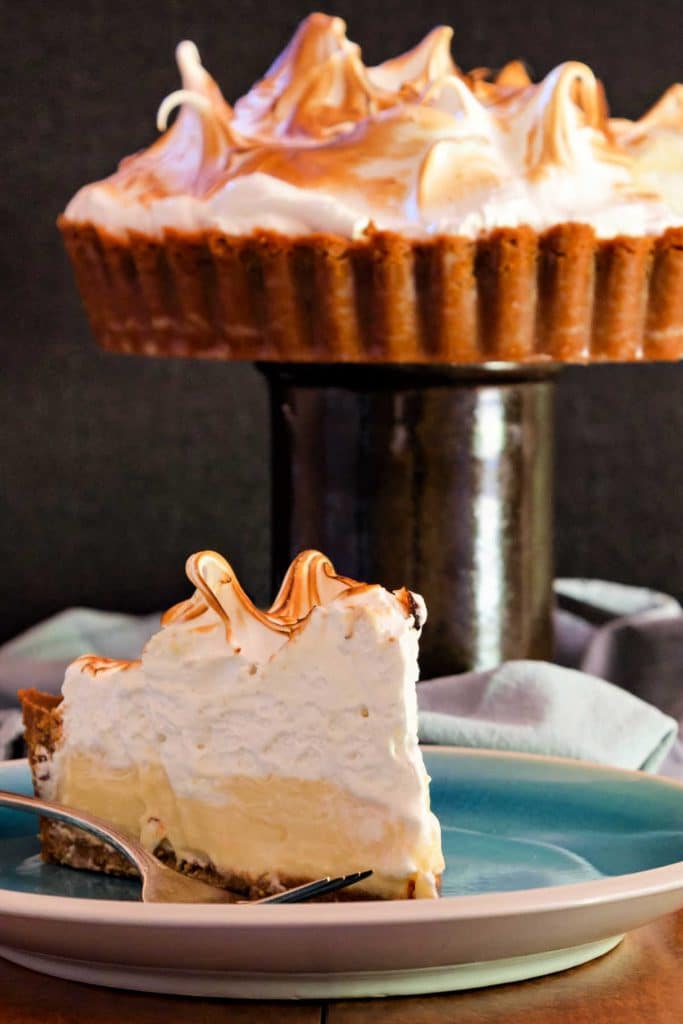
What’s Great About Italian Meringue
Italian meringue is a bit trickier to make than French meringue or Swiss meringue, but Italian meringue is very stable.
Since it is made with sugar syrup that has been taken to the soft ball stage, it won’t weep and deflate upon sitting like other meringues, which makes it Perfect for topping a pie.
You can use it straight-up as a nice airy cake frosting, top a pie (brown before serving), or use it as the base for Italian buttercream.
Pastry Chef Online Participates in Affiliate Programs. If you make a purchase through one of my links, I may earn a small commission. For more information click to read my disclosure policy
How to Make Italian Meringue
First, it’s important to understand the ratio of egg whites to sugar so that you can make as much or as little meringue as you need.
The most stable meringue is made with a ratio of 1 part egg whites to 2 parts sugar.
To make a lighter meringue, use a ratio of 1 parts egg whites to 1.5 parts sugar.
EXAMPLE of 1:2 RATIO
4 oz egg whites plus 7 oz sugar and 1 oz corn syrup (7+1=8)
Example of a 1:1.5 RATIO
4 oz egg whites plus 5 oz sugar and 1 oz corn syrup (5+1=6)
That Sounds Like a Very Lot of Sugar!
Yes, it is. But I promise you, if you want a dense and marshmallowy meringue to swoop onto a pie, you need this amount of sugar.
Sugar is what helps to “cook” or denature the proteins in the whites, and if you don’t use enough, your meringue will break down quickly and will most likely weep and get watery.
If you simply cannot stomach using a 1:2 ratio of egg white to sugar, please don’t go below 1:1.5 ratio. Your meringue will suffer.
Ingredients and Substitutions
You’ll need:
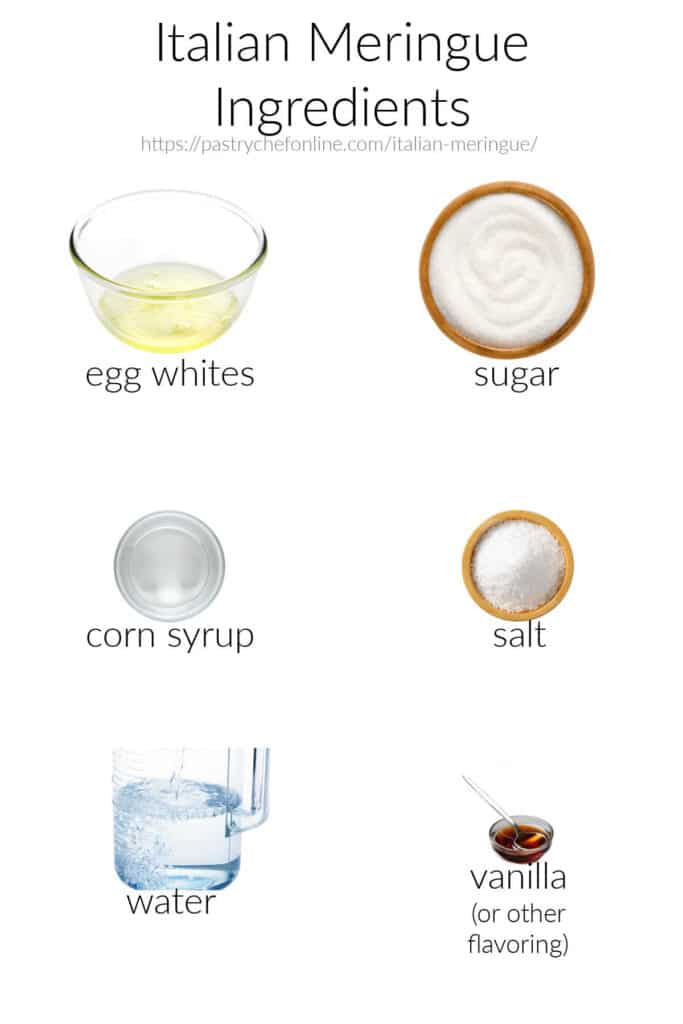
- egg whites: Egg whites are composed of liquid and protein, and they provide the structure for the foam. Older whites whip more quickly, but fresher whites will be more stable
- sugar: Provides sweetness and also enters into solution with the water in the egg whites to prevent weeping
- corn syrup: a little corn syrup helps guard against crystallization when the sugar is cooking. You can leave it out, but you’ll have to be more vigilant with your sugar syrup. If you do leave it out, keep your ratio of egg whites to sugar and 1:1 or 3:2, depending on how sturdy and stable you need your meringue to be
- salt: Tempers the sweetness and brings out flavor. Don’t leave it out, even if you just use a pinch or two
- water: Helps dissolve the sugar at the beginning of the cooking process. Water boils at 100C/212F and, since the sugar is cooked to 118C/244F, the water boils away while the sugar cooks
- vanilla: You can use other flavorings as well. Other extracts, citrus zest, ground spices like cinnamon or ginger, etc.
Procedure
Weigh your whites.
To generously top a pie, use 4-5 egg whites.
Weigh them, and then use double the amount of sugar and corn syrup, by weight.
Would you like to save this post?
Put whites along with a pinch of salt in your mixer bowl.
Add enough water to the sugar/corn syrup mixture to get things wet. Bring up to a boil. When it boils, cover to let any sugar crystals wash off the sides of the pan.
Once your sugar syrup has reached about 230F, start whipping your whites on medium-high speed to get them nice and foamy.
Your target temperature is 244F, so keep an eye on it. Once the syrup has reached about 242-3F, turn off the heat.
Pour your syrup into your beating egg whites in a steady stream. By the time you move your pan, your syrup will be at 244F, so don’t be concerned that you’re not Doing It Right.
Jenni Says: Make sure that you’re pouring the syrup into the bowl between the side and the madly spinning whisk so it doesn’t splatter all over the sides of the bowl.
Continue beating the whites until very light and fluffy.
You want your meringue to be very glossy and easily hold stiff peaks. Spread it on…whatever you’re spreading it on…before it cools down as it will get lumpy if you start messing with it once it has cooled off. Use it while it is still nice and warm but not steaming.
Here’s a collage of images to show you the basic steps of making Italian meringue. NOTE that I used organic sugar which is why the syrup has a bit of an amber cast to it.
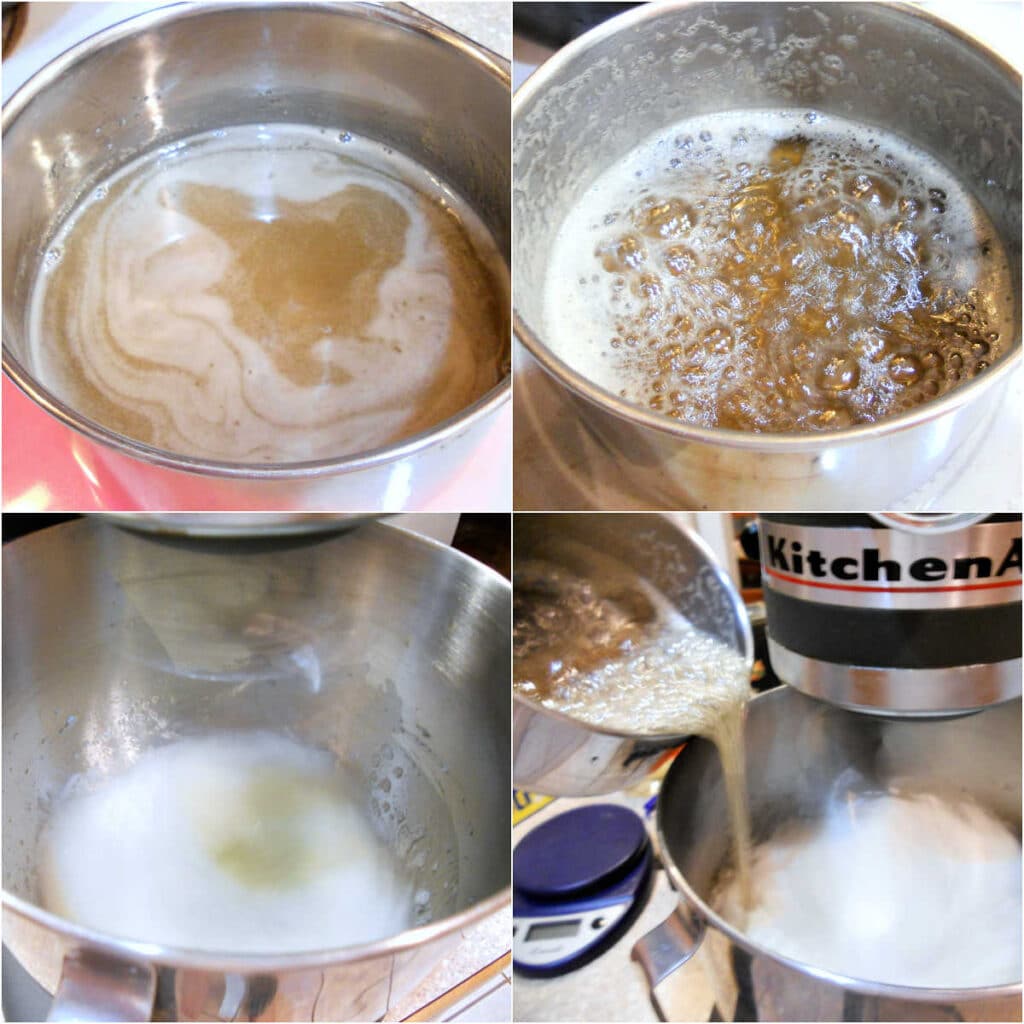
- Dissolve sugar and corn syrup in a bit of water.
- Bring to a boil.
- While the sugar syrup is heating, start whipping your whites. They should be at medium peaks before you start adding your cooked syrup.
- Carefully stream the sugar syrup into the whites between the side of the bowl and the spinning whisk. Beat on high speed until very light and billowy and still warm.
Pro Tip
Store the filled biscuits back in the wrapper the rolls came in. They’ll be fine in the fridge for up to a week.
Nothing burns like a sugar burn, friends. If it gets on you, resist the urge to put the burned part in your mouth. You’ll just have a burned mouth, too. Hence, the ice water.
A Note About Measurements
Don't let its small price and small size fool you. The Escali Primo is an accurate and easy-to-use food scale that I have used for years. It's easy to store, easy to use, has a tare function, and easily switches between grams and ounces/pounds for accurate measurements.
Questions?
It will help me and other readers so much if you take a moment to rate and leave a review for this recipe.
You can use the stars to rate 1-5 (5 is best), and leave a review in the comments. It helps me make adjustments if any are needed, and comments help others decide whether the recipe is worth making.
Other ways to share include pinning, and/or sharing on your favorite social media platform.
Thank you so much for taking the time!

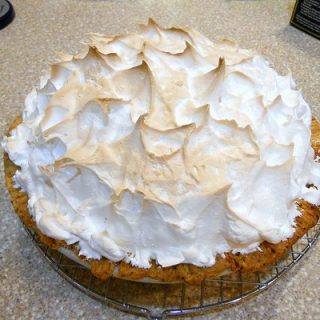
Italian Meringue
Would you like to save this post?
Ingredients
- 1 part egg whites
- 1¾ parts sugar
- ¼ part corn syrup (the corn syrup helps to keep your sugar syrup from crystallizing)
- Water
- heavy pinch fine salt
- flavoring (vanilla, liqueur, etc)
Instructions
- Put the whites and a pinch of salt in the bowl of a stand mixer fitted with the whip attachment.
- Put the sugar, corn syrup and enough water to make things wet in a heavy-bottomed pot on the stove.
- Stir to get things going, then bring the mixture to a boil. Cover the pot with a lid or a piece of plastic wrap and let boil for 2-3 minutes to clean the sides of the pan of any errant sugar crystals. Take off lid/carefully remove plastic wrap.
- Plop in your candy thermometer. No more stirring. You’re shooting for 244 degrees, F. (You can go to 240, but I’m partial to 244).
- When the sugar syrup reaches about 230 degrees, start whipping your whites at medium speed and then increase to high speed once they get a little foamy. Ideally, they’ll be at medium peaks when your sugar reaches 240-244. You might need to play around with this a little bit.
- When the sugar mixture is about 2 degrees cooler than you want it, carefully remove from the stove, turn the burner off, and turn the mixer speed down to medium.
- Steadily pour a thin stream of the sugar syrup down the inside of the bowl. Pour slowly enough that you don’t splash syrup on the whisk, thereby shooting molten sugar all over the inside of the bowl and not into your meringue.
- When all the syrup is in, turn the mixer back up to high speed and whip until cool. Add flavorings, and there you have it. Italian Meringue. Yay!
Did You Make Any Changes?
Notes
- frost a cake (use a torch to brown the meringue)
- top a pie (again, a torch comes in handy here)
- whip in extracts to flavor it
- whip in sifted cocoa powder or some chocolate syrup, to taste, for a chocolate meringue
- whip cool butter into the meringue, a bit at a time, to make Italian buttercream

Hi, y’all! I hope you’ve enjoyed this post and hopefully also learned a thing or two.
If you like my style, I invite you to sign up for my occasional newsletter, The Inbox Pastry Chef.
Expect updates on new and tasty recipes as well as a bit of behind-the-scenes action. I hope to see you there!


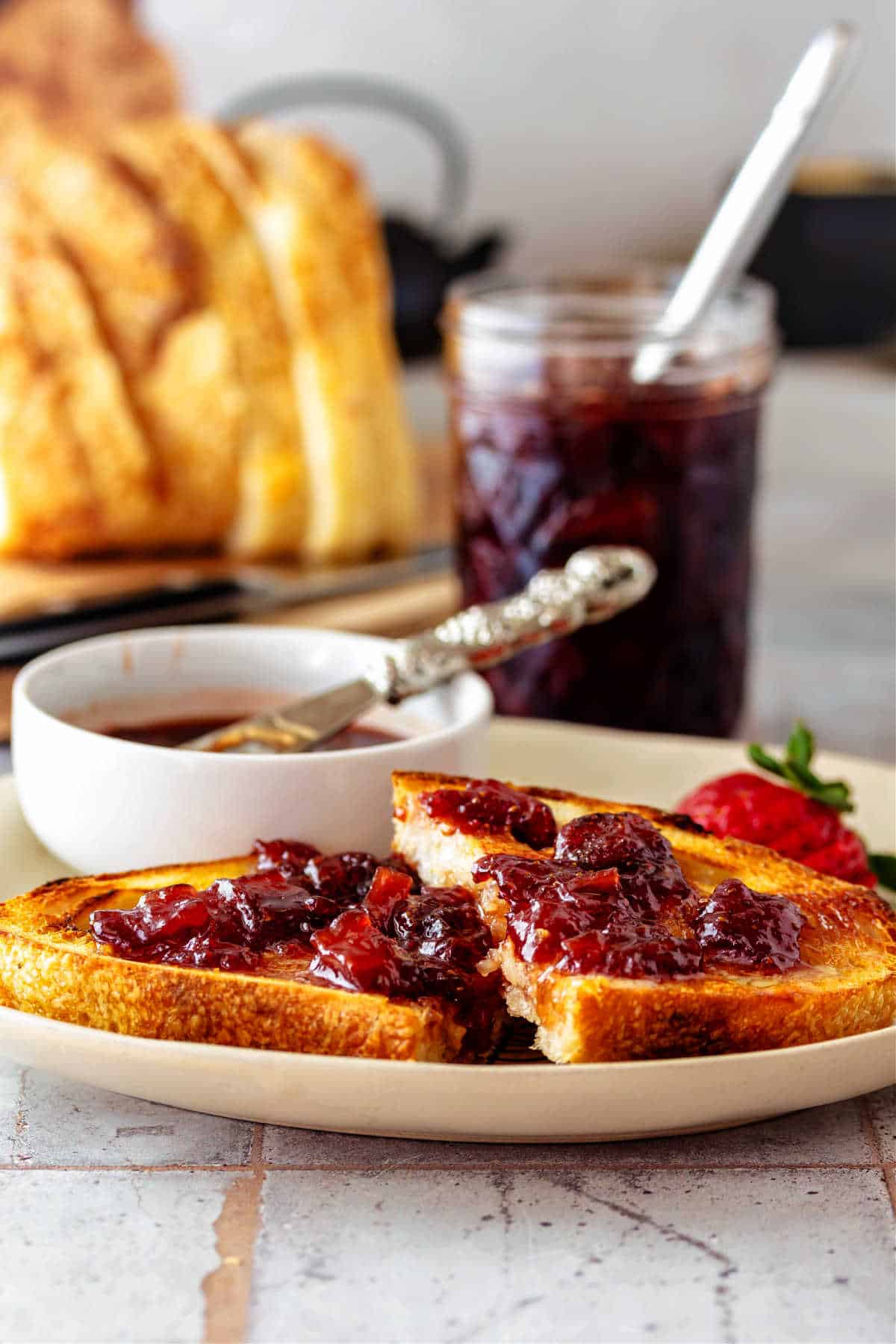
Join in Today!
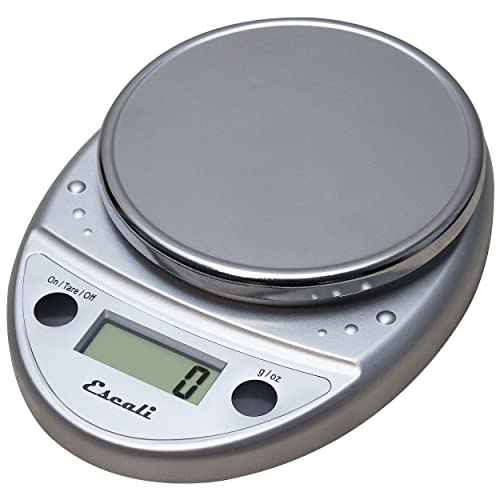

Hi! I was wondering if you could use honey in place of the corn syrup. It seems like the main point of the corn syrup is to avoid the sugar from crystalizing as it runs down the side of the bowl into the eggs (which I have experienced!) Would honey be able to do the same thing? How would that affect the sugar ratio?
Thank you! God Bless!
Hi there! Yes, you can sub honey for the corn syrup. Honey is a bit sweeter than corn syrup, so reduce the sugar by maybe a Tablespoon. Enjoy!
PLEASE REMEMBER elevation affects the ‘doneness’ of your sugar syrup! If you cook it to 244 at a mile above sea level, it will be far too ‘stiff’, and won’t mix well into the egg whites: you may even end up with a layer of hard candy at the bottom of your bowl. Standard advice is to decrease the temperature by 2 degrees f per thousand feet of elevation, though I have better luck lowering it even further: I’m at 5500 feet, and 230 gives me better results.
Great advice. I do not generally write for folks at high elevation, but I do give tgis info in most of my candy recipes. Thanks for reminding me it goes here, too.
Stumbled upon your blog while looking for a stable and sturdy Italian meringue recipe and can’t wait to try! Corn syrup isn’t common at where I live so I’m going to have to use all sugar. I read a few times but couldn’t quite understand ‘keep your ratio of egg whites to sugar and 1:1 or 3:2’ under the corn syrup explanation. Can you elaborate on this please? Thank you in advance!
Hey, Huey. If using all sugar, by weight either use (for example) 150g egg whites and 300g sugar to maintain a ratio of 1:2 (1 part whites to 2 parts sugar. Or for a slightly more delicate meringue, use 150g whites to 225g sugar for a ratio of 2:3 (2 parts whites to 3 parts sugar). I see there was a typo of 1:1. That should have been 1:2. I will fix it to avoid further confusion. Enjoy the meringue!
It says 1 part egg white. What does that mean? How many egg whites?
Hi, Heather. This recipe is written so you can scale it up or down by weight. So 1 part egg whites to 2 parts sugar means twice as much sugar as whites, by weight. 4 oz egg whites weighed on a scale will require 8 oz sugar. 3 oz whites weighed on a scale will need 6 oz sugar, etc. I strongly encourage everyone to buy a kitchen scale for consistency and accuracy.
I have use this Italian meringue recipe several times, and I absolutely love it, I could give it 10 stars if it all possible,,,my Only question is should I put this on a hot pie Filling or cool filling, I know regular meringue is put on a hot filling, I have never put this on a hot pie filling, I’ve always let my lemon filling cool a bit and then put it on and torch it, please let me know what you think is the best for Italian meringue, as I said I have use this recipe many many times to pipe on cakes and pies , but it doesn’t state whether you were supposed to use this on a hot filling or a cool filling
Do you spread Italian Meringue over hot pudding pie or cold pudding pie?
Hey, Sally. Good question. I spread it on the warm but not piping hot pudding. If you put it on before the filling has had a chance to set up a little, it can be hard to spread and to keep the filling from mixing with the meringue. Hope that helps, and enjoy!
Which corn syrup is best to use in Italian meringue, white or golden corn syrup
Even if you use dark corn syrup, the meringue will generally whip up very very light in color–almost white. If you want to ensure a bright white, use the light, but either will work, Elly. Thanks for stopping by and thanks for the question!